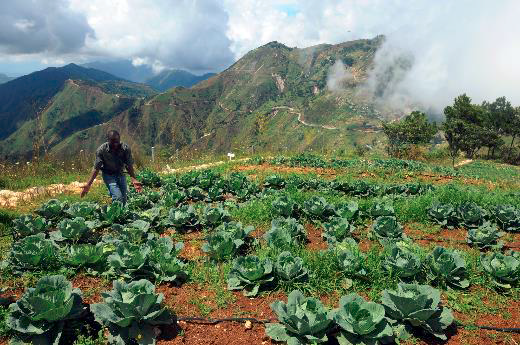
Early in 2016 USAID issued a Call for Expressions of Interest to organizations that might be interested in working with the Agency to co-create an approach to implementing the New Alliance’s Analytical Framework for Responsible Land-Based Agricultural Investments (AF). USAID was interested in identifying private sector investors with existing or new investments who would be willing to test the provisions of the AF at the operational level. The new pilot is, as a result, crafting practices that aim to reduce risks for stakeholders by improving efforts to understand, identify and recognize local land rights; assess direct and indirect impacts of investments on tenure rights; create appropriate mitigation efforts; enhance community participation and consultation; improve negotiations and contracting with local people; improve grievance mechanisms and processes; strengthen transparency and food security, reduce corruption and recognize human rights and environmental sustainability.
During this quarter the eight organizations that were selected move beyond the Call for Expression of Interest (EOI) stage were invited to participate in a co-creation workshop along with USAID. These organizations, along with representatives from USAID and ERC, gathered together in two separate locations: one group met in Landover, MD while the other group met in Pretoria, South Africa. Connected via a video conference link, the two groups brainstormed ways to apply the Analytical Framework to existing and prospective investments in several African countries. Immediately following the co-creation workshop the eight organizations broke into broke into five working teams.
In mid-August, each team produced a draft Concept Paper outlining how the team would “road test” the Framework to meet the goals outlined above. USAID and ERC provided extensive comments to each team and engaged each in conversation to focus and strengthen their drafts. Finally, in mid-September, four of the five teams submitted a final Concept Paper. In late September, an independent panel of experts reviewed the four papers and selected two papers to tentatively move forward to award stage.
In the next quarter ERC will continue award negotiations with each of the two teams and, should negotiations proceed successfully, will submit appropriate materials to the Contracting Officer for review and approval.

